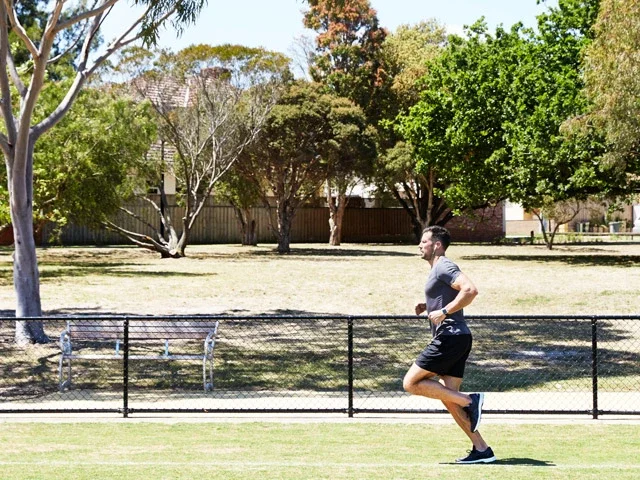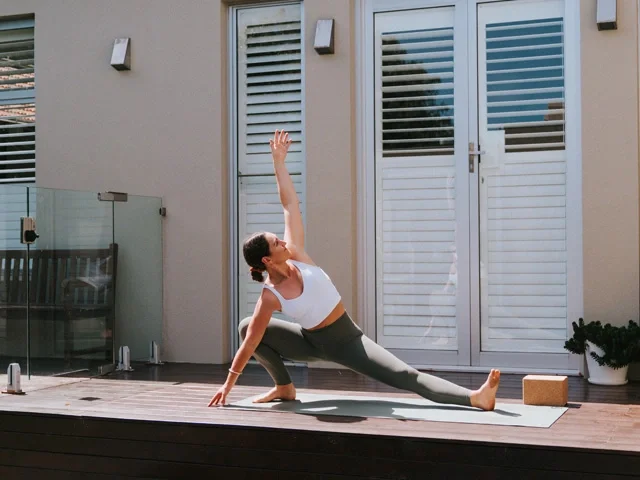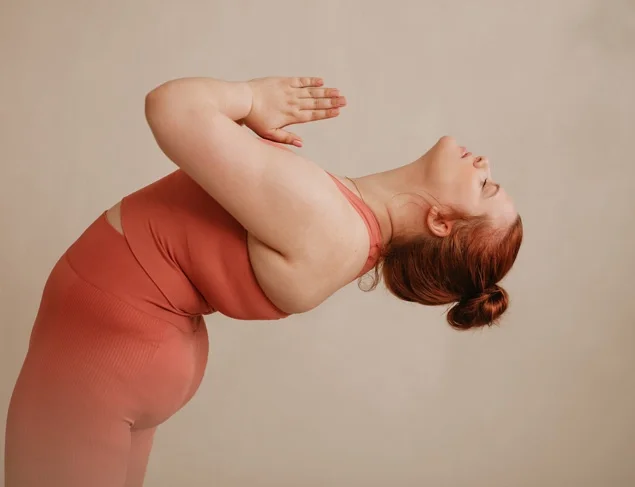Sam Wood’s top 5 exercises to beat back stress

It’s no secret that moving our body can reduce stress. Exercise is well known for releasing endorphins, which are neurotransmitters that cause us to feel good.
Many of us have experienced that ‘runners high’ or the mood boost after getting our heart pumping during a workout. It’s a quick and easy way to shift our state and leave us feeling more positive and energised.
Movement also promotes blood flow and improves our ability to use oxygen, both of which benefit our brain and nervous system. Along with this, exercise can help us focus on the task at hand, taking our mind off our worries and allowing us to use repetitive movements as a form of moving meditation.
Speaking of focus, it can help us concentrate and promote cognitive function long after we’ve finished our workout of choice. This in itself can help reduce stress, because it provides us with the mental sharpness to tackle our to-do list and problem solve.
Knowing that exercise helps us combat stress is something that we can use to our advantage. Here are 5 types of exercise that will support our nervous system.

Chase the 'runner's high' to reduce stress and improve your mood.
1. Running
You may be familiar with the ‘runners high’, which leaves us feeling amazing after we’ve hit the pavement running. The endorphins we get from running are fantastic for reducing stress and improving our mood.
Additionally, running improves blood flow to the brain, which supports it in processing and reducing stress.
If running isn’t for you, the simple act of going outside for a brisk walk can also be beneficial for reducing stress.
2. HIIT Workouts
HIIT stands for High-Intensity Interval Training and involves short periods of intense exercise followed by rest periods in between.
Due to the high intensity, it’s effective at getting our heart rate up and promoting blood flow. This benefits our nervous system and also helps get the endorphins pumping, bringing on that post-workout high.
HIIT workouts don’t have to take up a lot of time, meaning they’re easier to fit into our day and prevent us from stressing about finding the time to work out – it’s a win win.
3. Boxing
Not only is boxing a great workout, but it can also help relieve our frustration and anger by punching it out.
Boxing is another form of movement that gets our heart pumping and improves blood flow to the brain. It helps
release endorphins and there is something so therapeutic about punching a boxing bag.
4. Dancing
A fun way to move our body, dancing can be upbeat and boost our mood when we choose uplifting music. Add in the endorphins and benefits of exercise and we’re in for a great time!
Put on your favourite song and dance in your living room, or head out to your local dance centre to take some classes.

Yoga relieves physical tension and causes you to focus on the present moment
5. Yoga
There are many types of yoga, from the fast-moving vinyasa flows to the more restorative yin practices. The great thing is that whichever option you go for it can help promote relaxation. Yoga focuses on stretching, strengthening and toning. It relieves physical tension and causes you to focus on the present moment.
A big aspect of yoga is bringing awareness to our breath. Deep breathing can regulate our nervous system by stimulating our vagus nerve. It helps shift us from ‘fight or flight’ into ‘rest and digest’, communicating to our body that it is safe to relax.
Whatever you choose when it comes to exercise, for the best results, remember that consistency is key. While one workout can leave us feeling great and help relieve some of our stress, we’re best to incorporate regular movement into our routine if we want to see the true long-term benefits it can have.
related reads
Reviewed by the healthylife Advisory Board April 2022
Sam Wood has over 20 years of experience as a personal trainer and is recognised as one of Australia’s leading experts and media commentators in the health & fitness industry. Sam is the founder and personal trainer of 28, Australia’s #1 home fitness and nutrition program.


